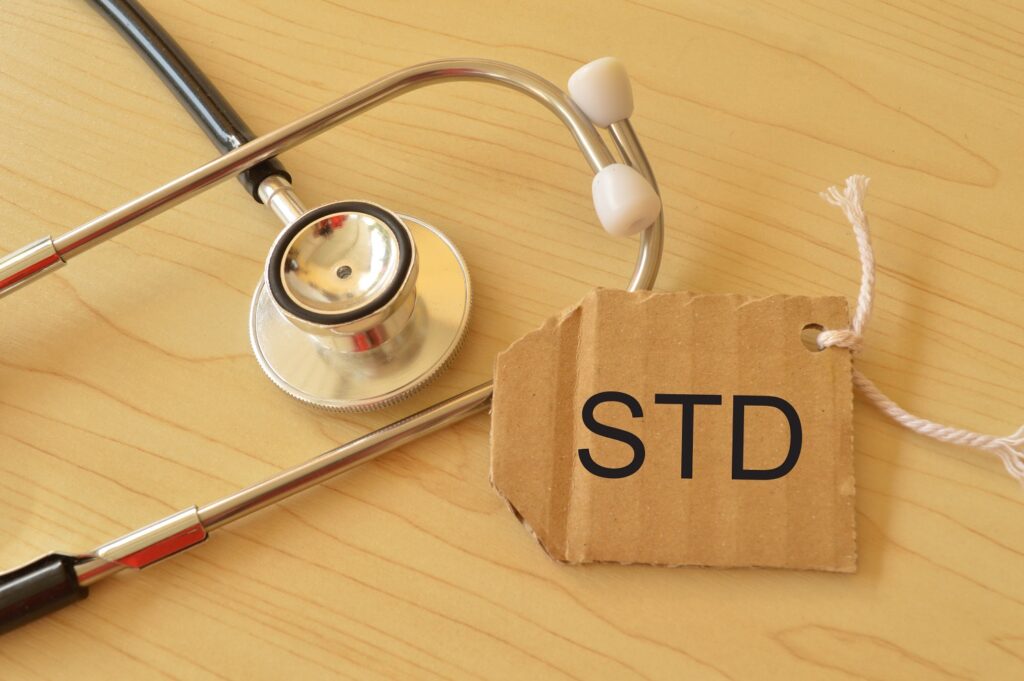Limited STI/STD Testing & Treatment

It’s an unfortunate fact that if you’re sexually active, you’ve likely been exposed to an STI/STD. You may be thinking about getting tested, but, let’s be real—it can feel embarrassing. However, you should never feel ashamed for taking charge of your health!
STI/STD Testing
Sexual activity not only puts you at risk for pregnancy but also for sexually transmitted infections (STI) and sexually transmitted diseases (STD).
It’s important to ensure that you safeguard yourself regardless of what your intention may be for your pregnancy. If you are sexually active, you should be tested for STI/STDs on a regular basis.

STI/STD Treatment
Some STI/STDs can be treated and cured with medications, but early detection is key for effective treatment.
Other STI/STDs cannot be cured but symptoms can be managed. If you think you have an STI/STD, make an appointment with us to discuss your concerns. According to the World Health Organization, chlamydia and gonorrhea are the most common STIs and are both treatable.[1]
Did you know that one in two sexually active persons will contract an STI by age 25?[2] If you or your partner have had sexual contact with more than one person, you need to be tested for STIs.
Some STIs have no noticeable symptoms. However, you do not have to have symptoms to be contagious; you can spread the disease at any time and not even know it. Left untreated, STIs can lead to more significant complications later.
An STI can become a sexually transmitted disease (STD) leading to Pelvic Inflammatory Disease (PID), infertility, and even cancer.
Sexually transmitted infections (STIs) can be caused by[3]:
- Bacteria (gonorrhea, syphilis, chlamydia)
- Parasites (trichomoniasis)
- Viruses (human papillomavirus, genital herpes, HIV)
The Centers for Disease Control and Prevention (CDC) estimates that nearly 20 million new STIs occur every year in this country, half of those among young people aged 15–24.[4]
Anyone sexually active runs the risk of contracting an STI. Those risks are increased by:
- Unprotected sex, even condoms do not protect you from all diseases or infections
- Sexual contact with multiple partners
- Have a history of STIs, you are more likely to get an STI again if you’ve already had on
It’s estimated that undiagnosed STIs cause 24,000 women to become infertile each year.[5]
Women who are pregnant can experience complications due to an STI. In fact, some STIs can be passed from a pregnant woman to the fetus before and during the birth.[6]
- Some STIs, such as syphilis, cross the placenta and infect the fetus in the womb.
- Other STIs, like gonorrhea, chlamydia, hepatitis B, and genital herpes, can pass from the woman to the baby as it passes through the birth canal.
- HIV can cross the placenta during pregnancy and infect the baby during delivery.
STIs, such as chlamydia, gonorrhea, syphilis, and trichomoniasis can be treated and cured with antibiotics that are safe to take during pregnancy.
STIs caused by viruses, like genital herpes, hepatitis B, or HIV cannot be cured. ABBA, Women’s Choice offers limited tests and treatments for gonorrhea and chlamydia, the most common sexually transmitted infection for women.
All of our testing and treatments are strictly confidential. We believe in protecting your privacy. Contact ABBA today and make an appointment to be tested for STIs.
Limited STI/STD Testing and Treatment in Portland, Maine
Looking for STI/STD testing in Portland, Maine? Look no further than ABBA, Women’s Choice. We offer limited STI/STD testing and treatment, no insurance needed!
Give us a call at (207) 977-2119 to schedule your appointment today.
Sources:
- Sexually transmitted infections (STIs). World Health Organization. (n.d.). https://www.who.int/health-topics/sexually-transmitted-infections#tab=tab_3
- Centers for Disease Control and Prevention. (1999). Achieving compliance with hand hygiene practices: A conceptual framework. U.S. Department of Health and Human Services. https://stacks.cdc.gov/view/cdc/30424
- Mayo Clinic. (n.d.). Sexually transmitted diseases (STDs) – Symptoms and causes. Mayo Foundation for Medical Education and Research. https://www.mayoclinic.org/diseases-conditions/sexually-transmitted-diseases-stds/symptoms-causes/syc-20351240
- Jefferson, I. S., Robinson, S. K., Tung-Hahn, E., Schumann, R., Marrero-Conti, S., Walton, J. M., Golden, E., Poon, E., Alam, M., & Tung, R. (2021, April 9). Assessing and improving the knowledge of sexually transmitted infections among high school adolescents. Dermatology Research and Practice. https://pmc.ncbi.nlm.nih.gov/articles/PMC8057898/
- Otu, A., Danhoundo, G., Toskin, I., Govender, V., & Yaya, S. (2021). Refocusing on sexually transmitted infections (STIs) to improve reproductive health: A call to further action. Reproductive Health, 18, 242. https://doi.org/10.1186/s12978-021-01296-4
- Office on Women’s Health. (n.d.). STIs, pregnancy, and breastfeeding. U.S. Department of Health & Human Services. https://www.womenshealth.gov/a-z-topics/stis-pregnancy-and-breastfeeding
